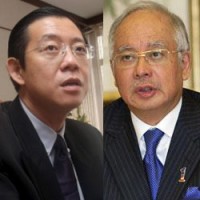With so many landmark political reforms in the past year it seems a shame that history might not judge the reform of the Printing Presses and Publications Act (PPPA) as fairly as it should.
That’s because this radical overhaul of our press rules, along with the Peaceful Assembly Act and the tranche of electoral reforms, live in the shadow of the scrapping of that hangover from colonial rule, the Internal Security Act.
The demise of the ISA was hailed around the world as a brave move that defined the premiership of Prime Minister Datuk Seri Najib Razak but scrapping this one law should not take away from the full breadth of his reform agenda.
The reform of the Printing Presses and Publications Act (PPPA) by the BN Government was the product of a mature administration not just telling the world that it can handle criticism, but that Malaysia is now an equal of any country in the world that values free speech in all its forms.
In fact the PPPA reforms were also significant in that they brought old media – newspapers and printed publications – into line with digital media, which has never been restricted in this country. Few international critics acknowledged that fact when they welcomed the news
Since the birth of the internet the rakyat has been free to comment, blog, tweet and complain whatever and whenever they want about the government, and the government has never used its power to try and stop them.
Najib went down this reform path knowing there is no turning back. Once such bold structural changes have made it is unthinkable that anyone would try to reverse them.
Except that is exactly what is happening in Penang.
Penang Chief Minister Lim Guan Eng recently began banning journalists from receiving all governmental communications and from all “open” press conferences and briefings.
Amazing, but true.
He was inconsistent in his reasoning, saying Utasan should be censored because it is “not a newspaper” but he didn’t offer a different reason for also banning the New Strait Times.
Guan Eng barely tried to hide the real reason for the ban. These two publications were running stories hostile to his administration. The none-too-subtle message was “play by my rules or get cut off”.
Guan Eng behaved like an old fashioned believer in censorship.
The lengths his DAP-led administration is going to enforce the ban was highlighted at a recent press conference in Batu Feringghi where DAP Jelutong Parliamentary Secretary Ong Ah Teong prevented the media briefing from beginning until journalists from both papers had left the room.
Can Guan Eng’s ban be seen as a sign of things to come should Pakatan Rakyat ever take power in Putrajaya?
Well before we answer that we must look at the other device now being overused as a weapon of censorship, the threatened lawsuit.
For the uninitiated, these writs are rarely about making money. Few of them every get settled let alone make it to court.
As The Choice recently reported, what they are really about is silencing detractors.
It won’t surprise anyone to know that Lim Guan Eng is one of the most litigious politicians in our country, along with Opposition Leader Datuk Seri Anwar Ibrahim, who recently set his lawyers onto the NST after it printed a detailed allegation that he instructed a bank to channel millions of ringgit into private accounts when he was Deputy Prime Minister in the 1990s.
The irony is that while Pakatan’s Guan Eng and Anwar use civil actions and outright censorship to stem the tide of criticism, the Prime Minister introduces reforms that make it easier for his critics to attack him and he doesn’t lift a finger to stop them.
This is because he knows that in a free and open society criticism from the people is part of the dialogue the leadership has with them. This criticism can be petty, unfair even spiteful but that comes with the territory.
As the saying goes you need a thick skin to be in public office but Guan Eng and Anwar don’t seem to know accept that. They behave in a thin-skinned manner.
GE13 will be fought on many issues and this won’t be the most important (that would be the economy).
But when voters ask themselves which candidates are sincerely committed to a free Malaysia, all they have to do is judge the candidates on their actions. If they behave like censors or litigious and petty politicians now, then they are unlikely to improve if they ever win power at the federal level.

